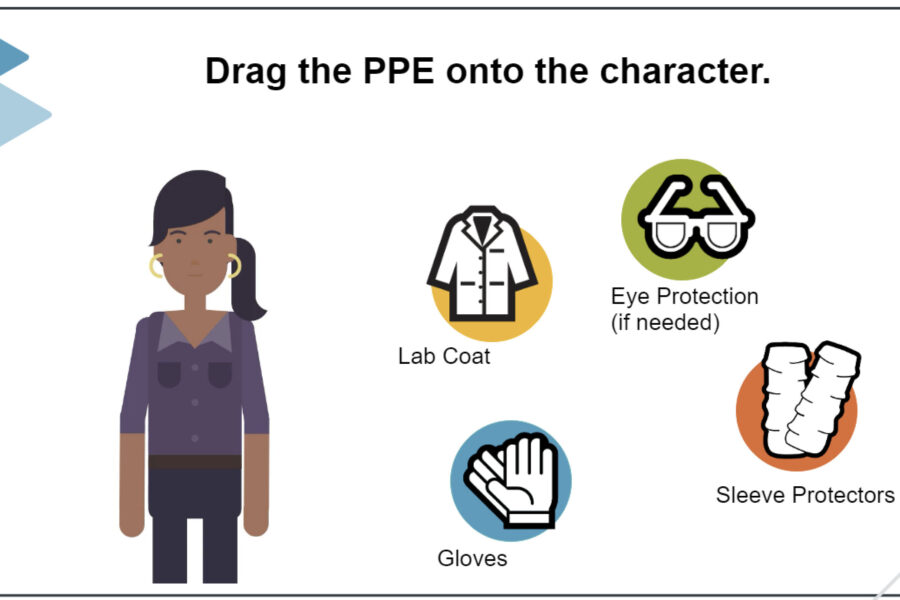Pediatric Cancer Research Group, E-Learning labs create animated training modules
The Pediatric Cancer Research Group lab regularly welcomes graduate and medical students to contribute to their research, and working in the lab requires a basic understanding of certain lab techniques.
Erin McIntyre, the lab’s research coordinator, created 12 PowerPoint decks to prepare students for that. She showed them to Don Coulter, MD, lab director and professor in the division of hematology/oncology, and he thought they had even greater potential.
Dr. Coulter asked McIntyre to work with the UNMC E-Learning Lab to adapt the slide decks into videos that could also be used for even younger students, particularly underrepresented female students who may not have been exposed to lab work before.
“To me the bigger picture is the goal of getting young women engaged in thinking about careers in science that are not nursing or medicine,” Dr. Coulter said. “Too often, young people move through grade school with the idea that the only career options available to them in the medical industry are care roles as a doctor or a nurse, but there are tons of other options and the option of an investigative scientist in a lab is just one.”
McIntyre worked with Steph Langel, instructional designer from the UNMC Office of Interactive E-Learning, to adapt her first presentation on Aseptic Technique. She was mindful of creating main characters from underrepresented groups in the animated sections.
In addition to being used in the PCRG lab, the training module is posted on the E-Learning website for other entities to use for training.
Public health’s wellness council launches new initiatives
UNMC College of Public Health students, faculty and staff have likely noticed the addition of a blue cart full of books near the break room.
The bookmobile (or colloquially, the COPHmobile) is a new book exchange initiative launched by the college’s wellness council, a group focused on supporting the well-being of students and employees alike.
College of Public Health members are welcome to donate and take books as they wish, similar to the rules of a Little Free Library. Complimentary to the book exchange program, the council also arranged for the college’s students, faculty and staff to receive a 20% discount at local bookstores The Bookworm and Jackson Street Booksellers.
“The discount is a great way to access a wider variety of books than can fit on the cart, and once you finish those books, you could donate them to the cart,” said Marissa Hardin, a student at the College of Public Health and member of the wellness council leadership.
The wellness council meets monthly at the Maurer Center for Public Health and via Zoom to discuss well-being topics and plan events.
“When we talk about health and well-being, especially in public health, we often prioritize physical health or mental and behavioral health,” Hardin said. “As we use the social determinants of health to describe the impact that various environmental and situational factors have on health, it is important to consider the whole person when working to improve overall quality of life.”
